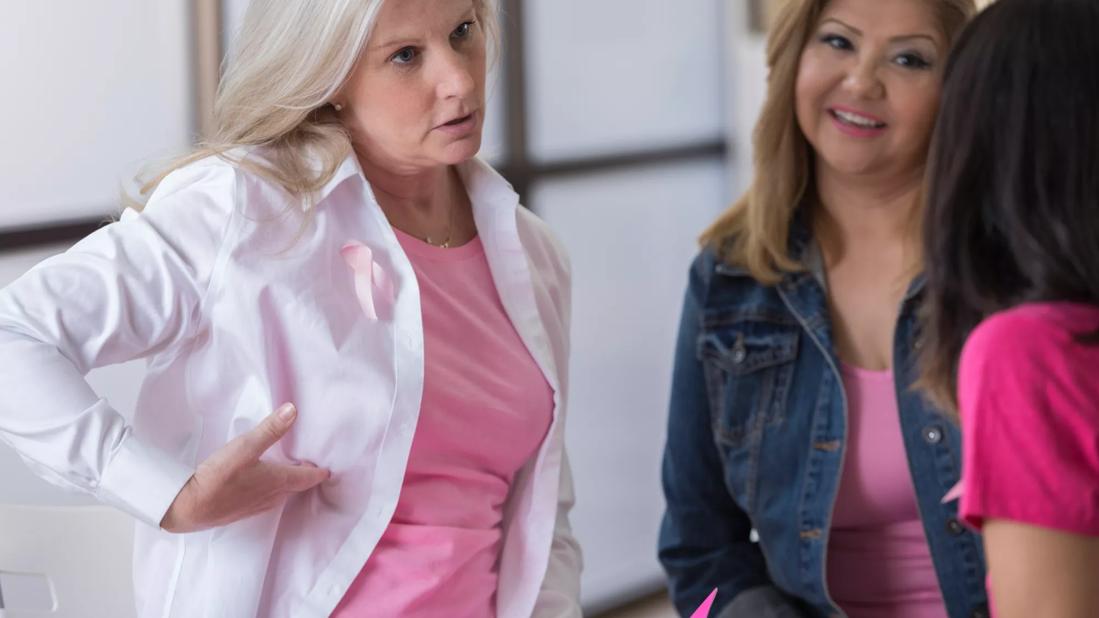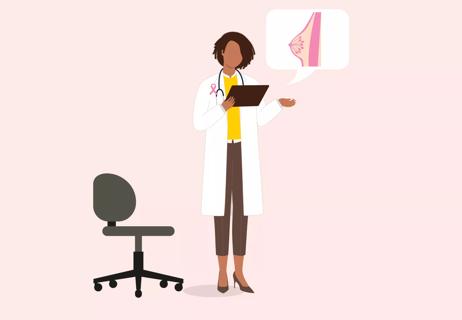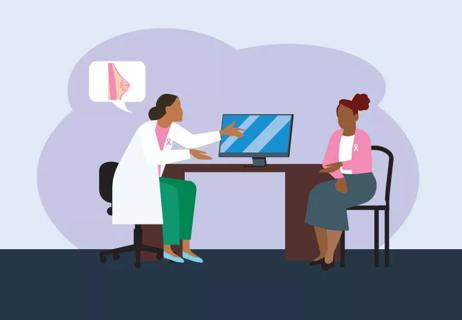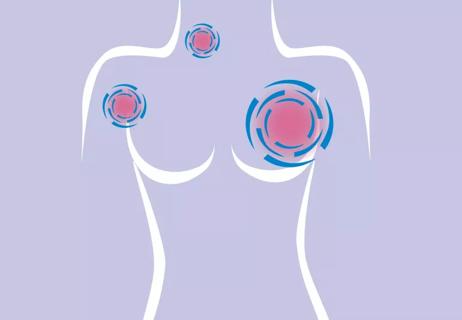Support can help you navigate your fears

If you have a family history of breast cancer, you may choose to undergo genetic testing to find out whether you have an increased risk of breast cancer. But sometimes the results of that testing can raise more questions than they answer.
Advertisement
Cleveland Clinic is a non-profit academic medical center. Advertising on our site helps support our mission. We do not endorse non-Cleveland Clinic products or services. Policy
Finding out that you have an inherited breast cancer risk can be frightening and confusing. Getting help from a psychologist at this time can help you navigate your fears — and may even improve your physical health.
It goes without saying that having breast cancer can cause anxiety and depression. Those who find out through genetic testing that they’re at risk for breast cancer often have similar — if less intense — reactions, says clinical health psychologist Kathleen Ashton, PhD.
A pilot study conducted on patients referred to Dr. Ashton showed that in patients with hereditary breast cancer risk, depression and anxiety levels were not as high as in patients with breast cancer, but they were still distressed.
“They share many traits, including fear of cancer, anxiety about their future and depression about the trauma they may soon face,” Dr. Ashton says.
You may face decisions about possible risk-reducing measures, such as a mastectomy or chemoprevention. Choosing risk-reducing surgery can prompt worries about body image and sexual health. Adopting a “watch and wait” approach to treatment also brings its own set of worries.
Getting the news may also bring up traumatic memories of a loved one’s experience with breast cancer. You may worry that you’ll have a similar experience. Or you may feel fearful or even guilty about the possibility of passing on the risk to your children.
Advertisement
“Many of these women have been traumatized by seeing a mother or sister who battled the disease, so it’s only natural they become anxious or depressed when they learn they may follow in those footsteps. It can be a very scary time,” says Dr. Ashton, a board-certified clinical health psychologist.
Fortunately, you don’t need to face these struggles alone. A psychologist’s office is a safe place where you can vent your fears. Talking to a behavioral health expert can help reduce your depression and anxiety, Dr. Ashton says.
Cognitive behavioral therapy (CBT) is a kind of talk therapy that focuses on the relationship between your thoughts, behaviors and emotions. Using CBT, your psychologist can help you become more aware of how your thinking may be driving your emotions, Dr. Ashton says.
You can also learn relaxation techniques to help manage your stress. This helps you become more aware of how your behavior impacts your mood.
Dr. Ashton’s pilot study showed a statistically significant reduction in depression and anxiety among people at high risk for inherited breast cancer for those who underwent CBT sessions.
“When depressed patients are having difficulty making a decision about risk-reduction surgery, CBT can help them move forward,” she says.
Therapy can’t take away your breast cancer risk. But it can help you feel more confident about your decisions and more optimistic about the future.
As a member of the Breast Center team at Cleveland Clinic, Dr. Ashton sees at-risk patients on the same day that they see a genetic counselor, breast physician and breast surgeon.
“Patients know we understand what they are facing,” she says. “Adding a psychologist to the team can help with all these issues.”
Although psychological help is routinely available during cancer treatment, not all treatment centers offer it to those who are at risk. However, your treatment team likely can refer you to a mental health professional who has experience working with these issues.
Advertisement
Learn more about our editorial process.
Advertisement

The answer is yes — but there are things you can do to help boost your energy

Physical activity and weight management can minimize your chances of getting the disease

Research consistently shows that soy-based foods do not increase cancer risk

Lumps may move and you may feel pain, but breast discharge typically isn’t a sign of cancer

Being informed can help you feel more confident about your care decisions

Metastatic breast cancer can spread anywhere in your body

Opt for fruits and vegetables, whole grains and lean protein to stay healthy

Type 2 diabetes isn’t inevitable with these dietary changes

Applying a hot or cold compress can help with pain